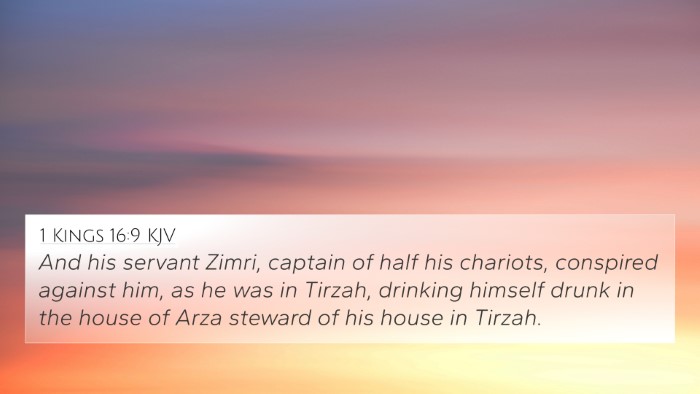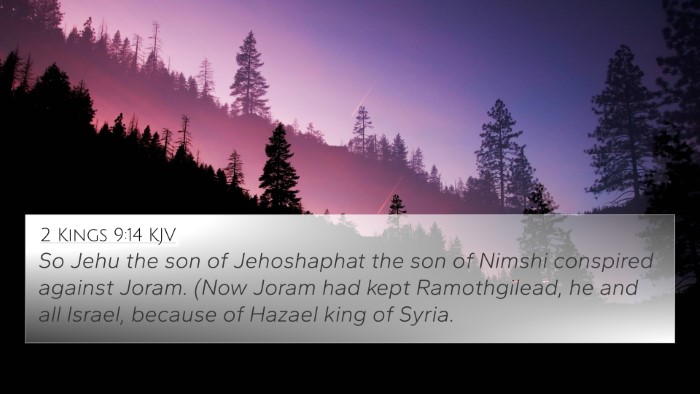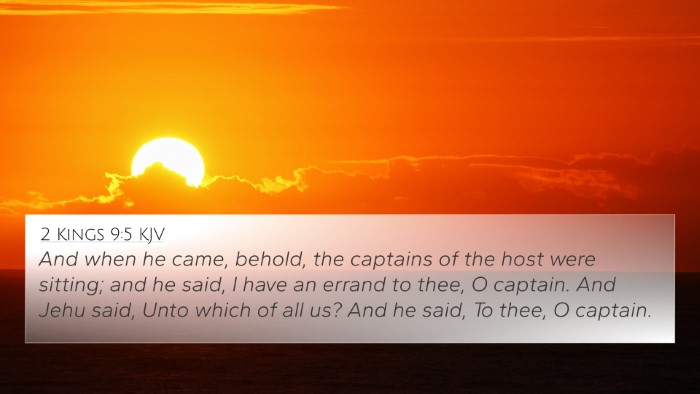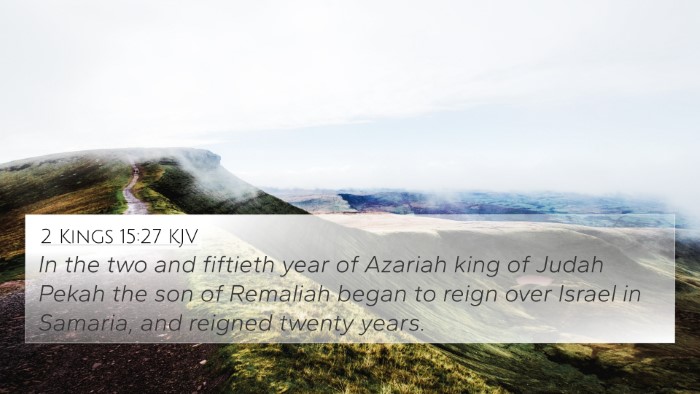Understanding 2 Kings 15:25
2 Kings 15:25 states:
"But Pekah the son of Remaliah, a captain of his, conspired against him, and smote him in Samaria, in the palace of the king's house, with Argob and Ariah: and he killed him, and reigned in his stead."
Summary of Meaning
This verse describes the violent overthrow of King Pekahiah by his own captain, Pekah. The act signifies a moment of instability and treachery within the leadership of Israel, capturing the ongoing conflict during the divided monarchy period. The mention of the palace emphasizes the treacherous nature of the act, occurring in a place usually associated with safety and authority.
Commentary Insights
-
Matthew Henry's Commentary:
Henry highlights the theme of divine judgement in Pekahiah's assassination, suggesting that it was a consequence of Israel's idolatry and wickedness.
-
Adam Clarke's Commentary:
Clarke draws attention to the significance of military leaders rising against their kings, underscoring the political dynamics and the lack of loyalty among the ruling class during this tumultuous time.
-
Albert Barnes' Commentary:
Barnes emphasizes the historical context, noting that this assassination furthered the cycle of violence and instability that plagued the northern kingdom of Israel.
Cross-References
Several passages relate to the events and implications of 2 Kings 15:25:
- 2 Kings 15:10 - The assassination of King Shallum, reflecting repeated acts of treachery.
- 2 Kings 15:30 - The violent rise of Hoshea after Pekah's reign portrays a cycle of betrayal.
- Isaiah 7:1 - The political landscape that involves Pekah and its consequences on Israel.
- Micah 3:1-3 - Addresses the perversion and betrayal of leaders, similar to events in 2 Kings.
- Jeremiah 22:17 - Discusses the consequences of neglecting justice and loyalty, akin to the themes in the reign of Pekahiah.
- Hosea 1:4 - Reflects the turmoil in Israel correlating with leadership issues.
- Matthew 27:18 - A New Testament reflection on betrayal and treachery.
Thematic Connections
This passage is significant not only for its historical account but also for its thematic connections to concepts of loyalty, divine judgment, and the consequences of leadership failings. These themes resonate throughout the Old and New Testaments, illustrating a continued dialogue on the role and responsibilities of those in power.
Cross-Referencing Insights
Engaging in comparative Bible verse analysis can deepen understanding of the inter-Biblical dialogue:
-
Tools for Bible Cross-Referencing:
Utilizing a Bible concordance can uncover similar themes and narratives across scriptures.
-
Identifying Connections:
Understanding the connections between this verse and others aids in grasping the broader narrative of scripture.
Conclusion
2 Kings 15:25 serves as a poignant reminder of the fragility of power and the continual conflict within Israel's history. The interplay of treachery and divine judgment is a theme that transcends individual texts, encouraging readers to seek out connections between Bible verses for a more profound understanding of God's word.








